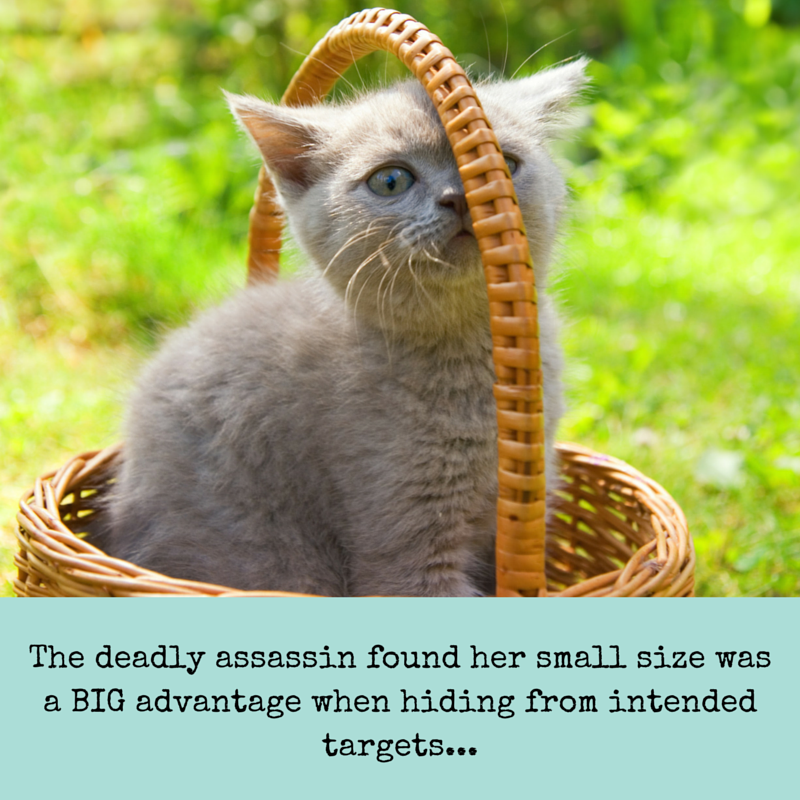
Are you a small business owner? Or a freelancer? Or other service professional using content to market your business and get in new clients or sales?
Then lean in closer… closer still.
Wait. Look around you… You sure Microsoft or FedEx or Ford aren’t listening in?
Good. Because here’s something I know firsthand from running copywriting workshops for multinational corporations:
1. When it comes to content marketing, they have exactly the same problems you do
2. You are much better equipped to solve those problems
But Amy! I just checked my bank balance and there’s no way I’m going to afford that billboard and daily tv advertising space. It’s just not going to stretch to it if I also want some Prosecco at the weekend.
Well that’s great, because being small just became the new BIG in the content marketing world and here’s why:
1. You are closer to your customer
I don’t necessarily mean physically, I mean that when you are small, you deal with your customer directly, which for content marketing and copywriting is a huge advantage. Why?
You speak your customer’s language
Recently I worked on a white paper for a large organisation. It was impeccably researched by the research department and had all the quotations and footnotes you could shake a stick at. A fantastic research piece.
A not-so-great piece of sales content.
It was written by academics for academics, not potential customers. The target market was busy project managers who wanted to find out more about a problem and then take action.
In a small business, you’re more likely to know the words and phrases your customer uses to describe their problems (aka copywriting symptoms).
So for example, instead of talking about algorithms, and data segmentation you can say:
At the end of every business day you’ll know exactly how much you’ve earned, how much you’ve spent and have a simple forecast that helps you budget more efficiently for the next 3-6 months.
If you’re not already listening firsthand to how your customer describes their problem, do it. When you use copywriting that mimics the conversation they’re already having in their head, you build immediate engagement and rapport.
2. You are closer to your customer
Ummm, Amy, this is embarrassing. How much Prosecco have you had? You just covered this point…
No my friend, it’s the same point but a different angle. I simply kept the title to see if you were paying attention. And you were!
Being closer to your customer also means you can reach out and connect with them more easily. How many times do you hear frustrating customer stories about long hold times, no replies via social media, a general feeling that the ‘big’ company doesn’t care?
Use this to your advantage. The funny thing is that it’s not that big businesses can’t do this, it’s just that they don’t tend to do it which leaves a huge door of opportunity for you to walk right through.
You have the chance to build a real relationship with customers and prospects and turn those people into evangelists of your business.
Take 20 minutes, look at some of your customers:
- Send them a thank you note
- Send them a thank you gift
- Help them out if they need to promote something
- Share their content if they’re a blogger or another business
- Offer them free advice / tips where appropriate
- Introduce them to people who might help them achieve what they want
It really takes just a few minutes to reach out and help someone, but that kind of habit doesn’t just build good karma points, it reflects the brand of your business and because it’s so unusual, makes it more likely that people will talk favourably about your business.
3. You are closer… just kidding: You focus on problems, not products
A recent prospect (another big London-based business) approached me to help with a content marketing campaign. Their previous campaigns hadn’t pulled in the results they’d expected and they wanted advice on what to change.
When I reviewed the content, I could see a big opportunity to increase engagement.
Previously all of their content focused on the product. Talking about the product, what it did, how it worked, the technology behind the software.
The problem?
Despite the great reputation of the business, the product was new to the market. The company also admitted:
Prospects didn’t know they needed it
Every piece of content was a direct sales piece for the software. It didn’t work because the target audience were being sold something they didn’t know they needed.
However (and this was the key piece) their customers were aware of the problems the software could solve.
The solution is to switch up the campaign so that the content highlights:
Hey – do you notice these challenges?
If so, you could be suffering from this problem
In which case, this product can help
I don’t want to harp on about the proximity you have to your customer but it is a real advantage. I’ve really noticed in the training I’ve done for businesses that the bigger they are, the more they tend to focus their content marketing on the products rather than the problems customers face.
If you are creating consistent content that:
- Answers questions
- Solves problems
- Saves time / money / effort
- Helps customers achieve something they want
I can pretty much guarantee you are creating more engaging content than some of the biggest content marketing budgets out there.
4. You can move and respond faster
As a small business owner, or freelancer you’re used to making the strategic decisions, and being smaller in size means there are less people you need to consult before making those decisions.
This is a killer advantage.
In the time it takes a big company to produce an ebook, or white paper (or even a blog) you can be well ahead:
- No committees
- No repeat meetings
- No needing sign-off from department heads who are on holiday..
You can just get on and go.
Despite this I know a lot of small business owners tinkering and tweaking their content to get it perfect before launch. And it can be pretty comforting having a committee around you, getting a consensus that everything’s okay before you hit the publish button.
Trust me, it’s a false security. Not only will it never be perfect enough (something any writer knows) but you really don’t know how your content is going to perform until you get it out there. The final piece of the puzzle is not your finishing sentence, but what readers do with your content. Do they share it? Do they comment? Do they ask for more?
The longer you tweak, the further away you are from that valuable feedback. Something big businesses can be waiting months and months to find out while the content committee holds another meeting (though I’ve heard their doughnuts are delicious).
So go!
5. You can use your personality
It’s one of the biggest things consumers want from businesses and one of the things most big businesses are to afraid to reveal.
And this makes perfect sense.
In the workshops I’ve done, one of the most confusing topics that comes up is:
Despite hefty tomes of branding guidelines, when you have lots of different people writing under the same company name it’s really hard to standardise a personality.
Unless you completely remove that personality.
Here’s what happens in a big business: A blog post is written, it’s passed onto a manager for approval who strips out some of the more light-hearted terms because she doesn’t think it makes the company look professional. Then she feels it doesn’t promote the company’s core objectives enough so she inserts a lengthy introduction about how many offices the business operates in around the world…
It’s then reviewed by a digital marketing manager who feels there should be more calls to action and maybe a quiz and a poll to increase engagement…
You get the picture. Suddenly you have a hybrid post, devoid of a human personality that simply feels as though it’s made up of lots of different moving parts to sell you something.
Embrace your personality in your content. Don’t be afraid to reveal your opinions or views as they relate to your business and industry and customer problems.
Not sure how to start revealing your personality? Start small:
- Share a post that personally moves you because you find it funny or inspirational for example
- Write about something you experienced personally that made you think about a problem your customer faces
- Talk about how you work behind-the-scenes in your business
- Use a content medium that is more personal, such as video or an amazing podcast all about copywriting and content marketing… 😉
What will you do as a small business to make a BIG impression?
I know big business budgets and marketing campaigns can be intimidating. I’ll confess, there have been many times where I’ve drooled over the idea of having a ‘content team.’ I’m not saying that big businesses can’t do content marketing well, there are plenty out there that nail it.
What I want you to know is that being small won’t hold you back.
So what can you do today to use your petite stature to make a big splash in the content world?
- Will you write a how-to post that deals with one of your customer’s biggest frustrations?
- Will you reach out to a customer and give them a helping hand?
- Will you ramp up productivity on that ebook you’ve been thinking about?
- Will you infuse a little more personality into your posts and articles?
I’d love to know how you feel about being small in a world of big business. Do you love it? Do you feel invisible? Let me know in the comments below!
Want even more help making an impact with your writing? Have you seen whether my copywriting membership course is right for you? Because remember, don’t write like everyone else, Write With Influence.

Great post Amy,
I can very well relate to this. I once purchased an information product from a company that i wanted to use for something but along the line, i wanted to contact the author to ask him few questions regards the product but each time i call, a lady will pick up telling me i can ask her anything and when i asked, she was unable to give me exactly what I’m seeking for.
I had to tell her that i want to talk to her boss directly and she asked me to call back some other time. I called again 3 more times and all my efforts to speak with him proved abortive and finally, i decided never to call again.
Now, what impression did i got? A very bad one and i decided to tell everyone i know to avoid buying anything from them now, that’s why being small is good because doing business with him could have been easier had it been he’s fully in charge.
Being closer to the customer is a great advantage to improve not only your marketing, but also your customer service! Thanks for sharing Theodore!